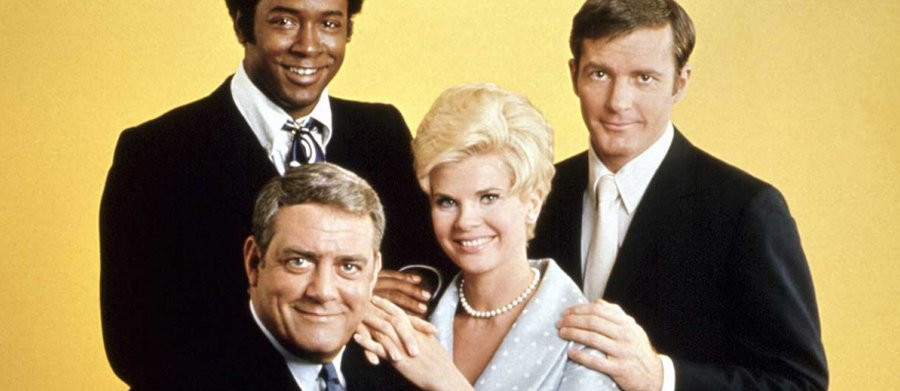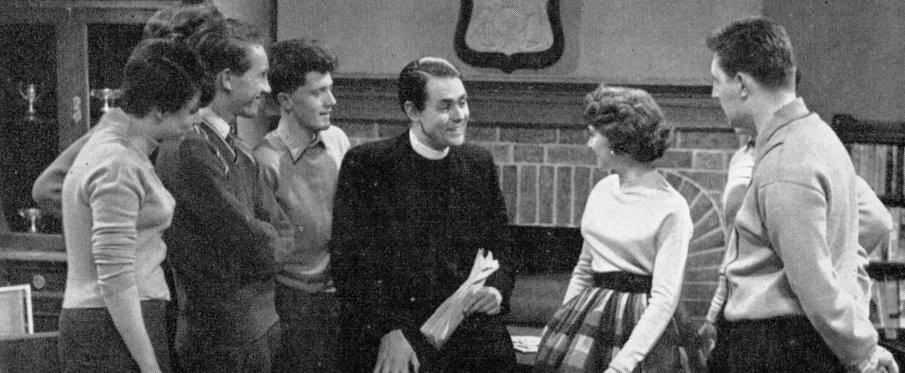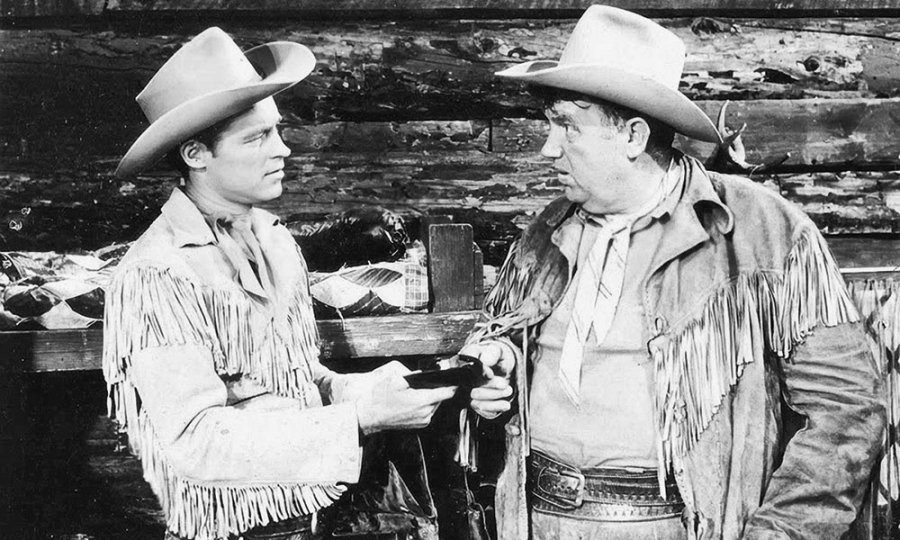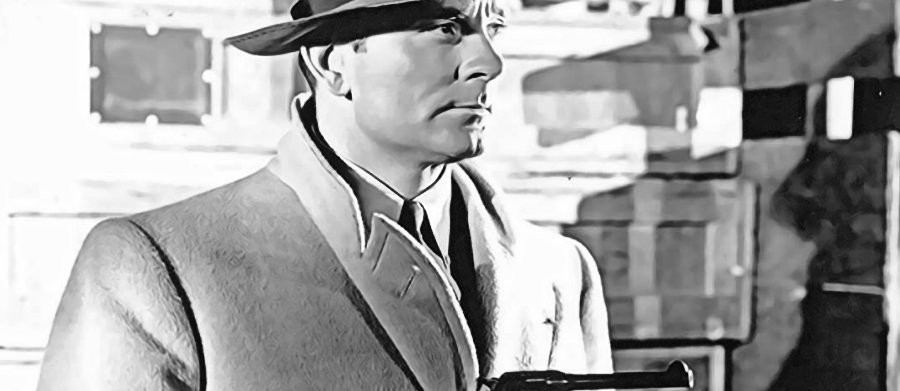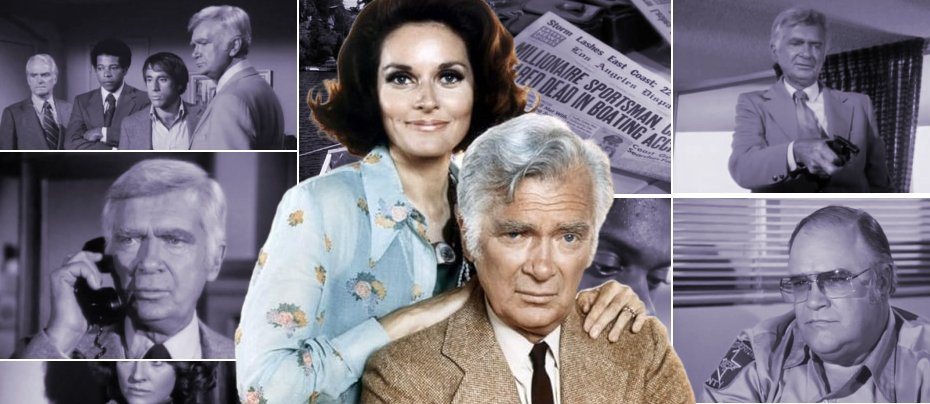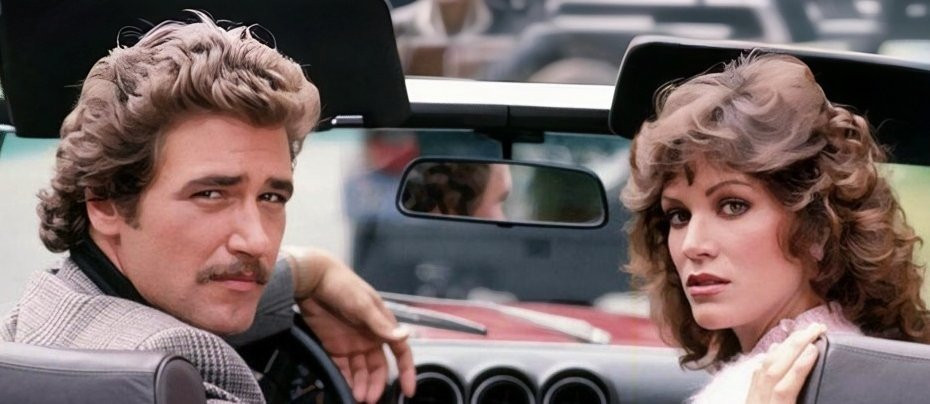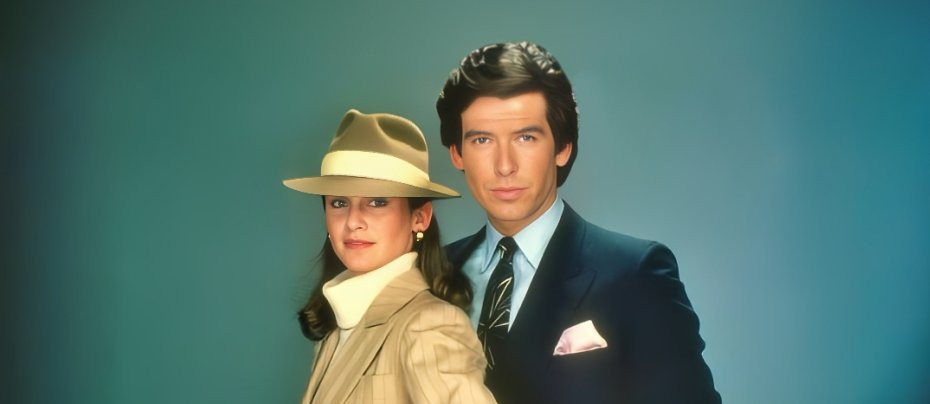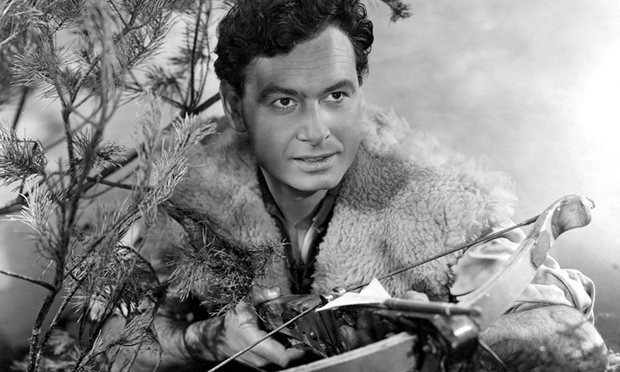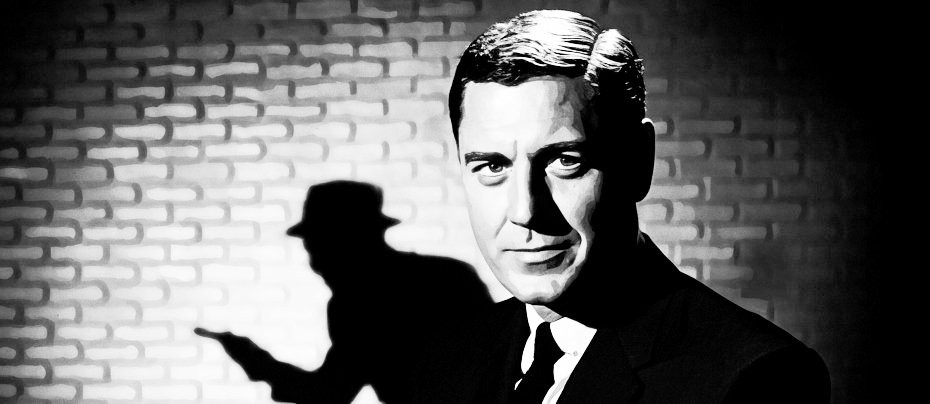
Peter Gunn
1958 - United StatesPeter Gunn left a lasting impact on the TV detective genre. Its blend of jazz, style, and sharp storytelling set a new standard for what a television crime drama could be. The series was a precursor to shows like ‘The Rockford Files’ and ‘Magnum, P.I.’
Review by Laurence Marcus
Peter Gunn is one of the defining TV shows of the late 1950s and early 1960s. Created by Blake Edwards and starring the effortlessly cool Craig Stevens in the title role, this American television series set the stage for the modern private eye genre on television. With its jazz-infused soundtrack, distinctive style, and polished production, Peter Gunn stands as an influential classic, renowned for its atmosphere, its iconic theme music, and the sophistication of its central character.
At its core, Peter Gunn follows the exploits of a suave and unflappable private detective operating in an unnamed American city. Gunn is a sharp-talking investigator who often finds himself embroiled in cases involving seedy underworld figures, murders, and corruption. Unlike the typical gumshoe of the era, Gunn is a cut above: urbane, sophisticated, and polished in demeanour, he operates out of a jazz club called "Mother's" where his girlfriend, Edie Hart, sings and he works closely with police Lieutenant Jacoby, who tolerates Gunn's unorthodox methods.
The mysteries are tight, with compelling twists and a strong sense of pacing. At a time when television crime dramas were often predictable and formulaic, Peter Gunn stood out by weaving noir influences with subtle humour and an undercurrent of cool that kept it fresh and exciting. The cases often delve into shadowy corners of society, with gangsters, femme fatales, and corrupt officials making frequent appearances. Gunn’s investigations combine wit with action, blending intrigue with sharp repartee.
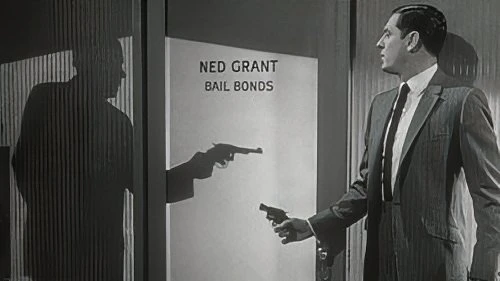
Edwards developed the series from his earlier creation Richard Diamond, Private Detective which had begun life as a radio series before transferring to the small screen in 1957. According to Edwards, Gunn was "a present-day soldier of fortune who has found himself a gimmick that pays him a very comfortable living. The gimmick was trouble. People who had major trouble will pay handsomely to get rid of it, and Peter Gunn was a man who will not only accept the pay but do something about it. He knows every element of the city, from cops to crooks. He also, of course, has his soft side and will occasionally take on a charity job for free." Gunn was modelled on Cary Grant, but Craig Stevens was perfectly cast as Peter Gunn. His performance is marked by a unique combination of detachment and charm, playing the character with a sense of calm confidence. Stevens' portrayal of Gunn is both likable and enigmatic—he’s a man of few words, but when he speaks, it’s with purpose. His delivery is calculated and deliberate, giving Gunn a certain gravitas that distinguishes him from other detectives of the time.
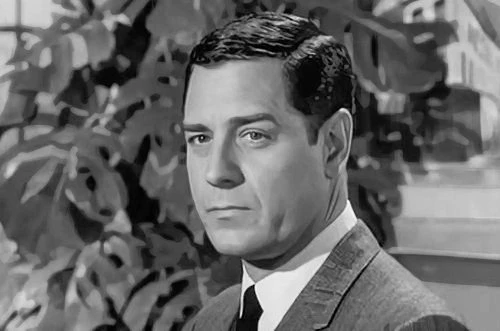
Gunn is also a man of style. He dresses impeccably in tailored suits, adding to the air of sophistication that permeates the series. But despite his refinement, there's no denying that Gunn can handle himself in a fight. He moves seamlessly between elegant nightclubs and gritty alleyways, bridging two worlds with ease. Gunn was one of the first TV detectives to bring such a strong balance of class and toughness to the small screen.
Much of the show’s atmosphere can be attributed to its groundbreaking musical score, composed by Henry Mancini. The Peter Gunn theme, with its distinctive staccato bass line and brassy flourishes, remains one of the most iconic television themes of all time. Mancini’s jazz compositions provide the perfect backdrop for Gunn’s world, enhancing the show’s sleek, cool aura. Whether it’s the melancholy notes accompanying a tragic revelation or the upbeat swing underscoring a nightclub scene, the music is integral to the show’s identity. The score was so influential that it became a best-selling album on the RCA label, The Music of Peter Gunn and this was followed up with More Music from Peter Gunn, which helped bring jazz further into the mainstream.
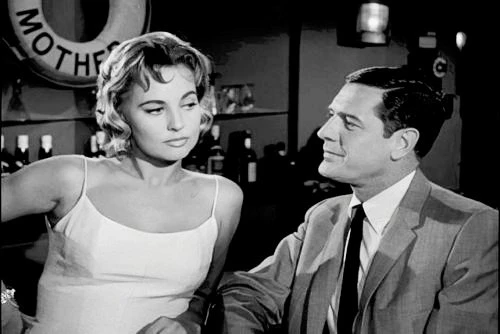
The supporting characters in Peter Gunn also contribute to the show’s appeal. Lola Albright, as Edie Hart, is both alluring and intelligent, playing an active role in his life without falling into the typical damsel-in-distress trope. Edie is a character who can hold her own, both in her relationship with Gunn and in her professional life as a nightclub singer. For the part of Edie, Edwards said, "We toyed at first with the idea of getting a name singer. But we soon realized it would be impractical to have a name singer cast in what is primarily a straight dramatic role. I'd always felt she [Albright] had a potential that had never really been tapped. She's sort of two beats off centre in the way she talks and sings, and that's what we were looking for."
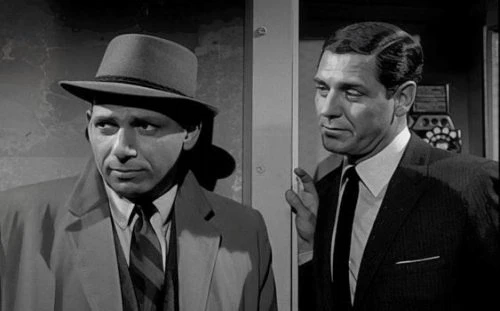
Herschel Bernardi as Lieutenant Jacoby is another standout. His dynamic with Gunn is one of mutual respect, and their exchanges often provide a bit of levity in the otherwise tense world of crime-solving. The two make for an effective partnership, with Jacoby's adherence to the law providing a counterbalance to Gunn’s more freewheeling methods.
Mother (played by Hope Emerson and later Minerva Urecal), the proprietor of the jazz club where Gunn often operates, is also a memorable character. She’s a no-nonsense figure who provides Gunn with occasional tips and resources while overseeing the nightclub with a firm hand.
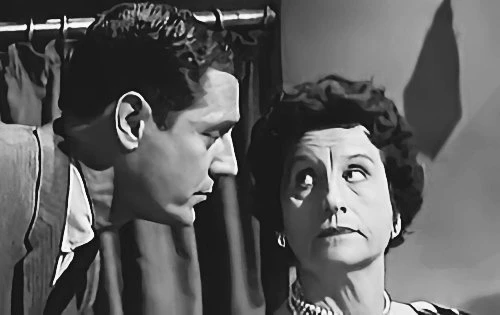
Peter Gunn left a lasting impact on the TV detective genre. Its blend of jazz, style, and sharp storytelling set a new standard for what a television crime drama could be. The series was a precursor to shows like The Rockford Files and Magnum, P.I., where the detective is more than just a grim law enforcer—he’s a charismatic figure with a personal life, flaws, and a sense of wit. Blake Edwards’ signature style, which would later blossom in his Pink Panther films, is evident here in the blend of dark intrigue and wry humour.
Like many TV shows, Peter Gunn saw a gradual decline in viewership as the series progressed. While it had been a critical and commercial success, nominated for eight Prime Time Emmys in 1959, by the third season, the audience numbers started to dip, and that, plus the series high production costs led to NBC cancelling the series in 1960. ABC stepped in and took over production, but the series only lasted for one more season, its last episode going out on 18 September 1961. The American television landscape in the early 1960s was evolving, and new genres and formats were gaining popularity. More light-hearted shows, family sitcoms, and Westerns were becoming dominant, shifting the overall tone of primetime TV. This change in audience preferences meant that stylish crime dramas like Peter Gunn, which relied on a more adult-oriented tone, were gradually falling out of favour.
That aside, Peter Gunn remains a television classic. For fans of noir, jazz, or simply well-crafted crime drama, it’s a show that still resonates with cool decades later.
Seen this show? How do you rate it?
Seen this show? How do you rate it?
Published on September 8th, 2024. Written by Laurence Marcus for Television Heaven.


